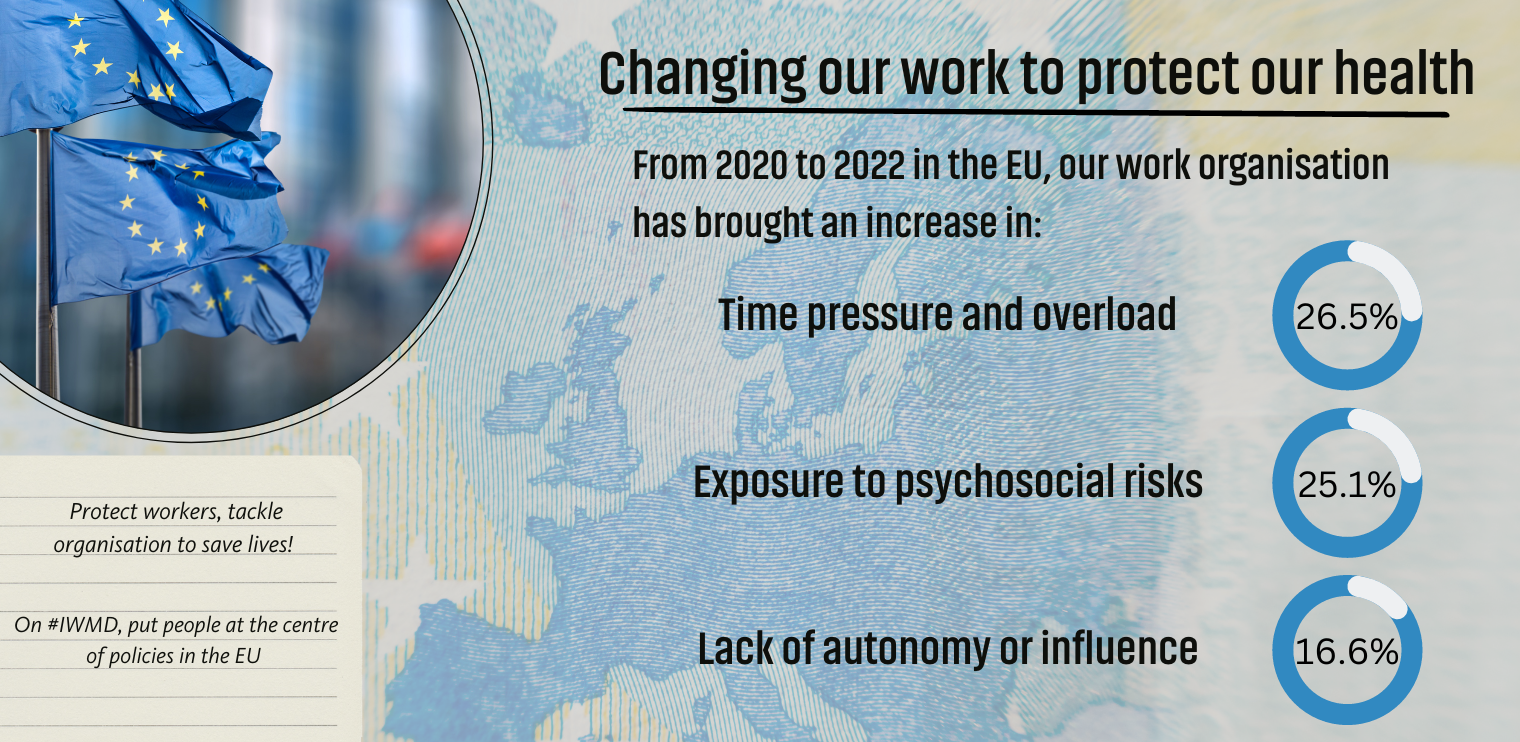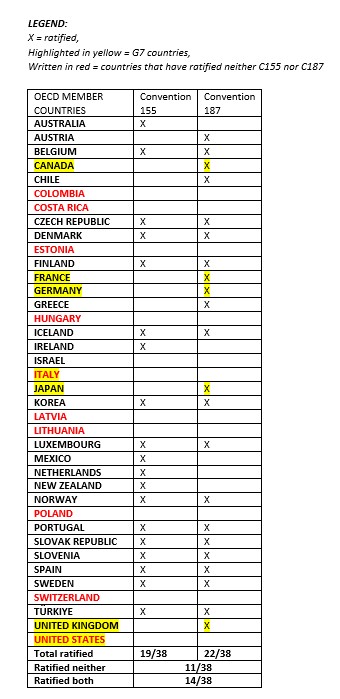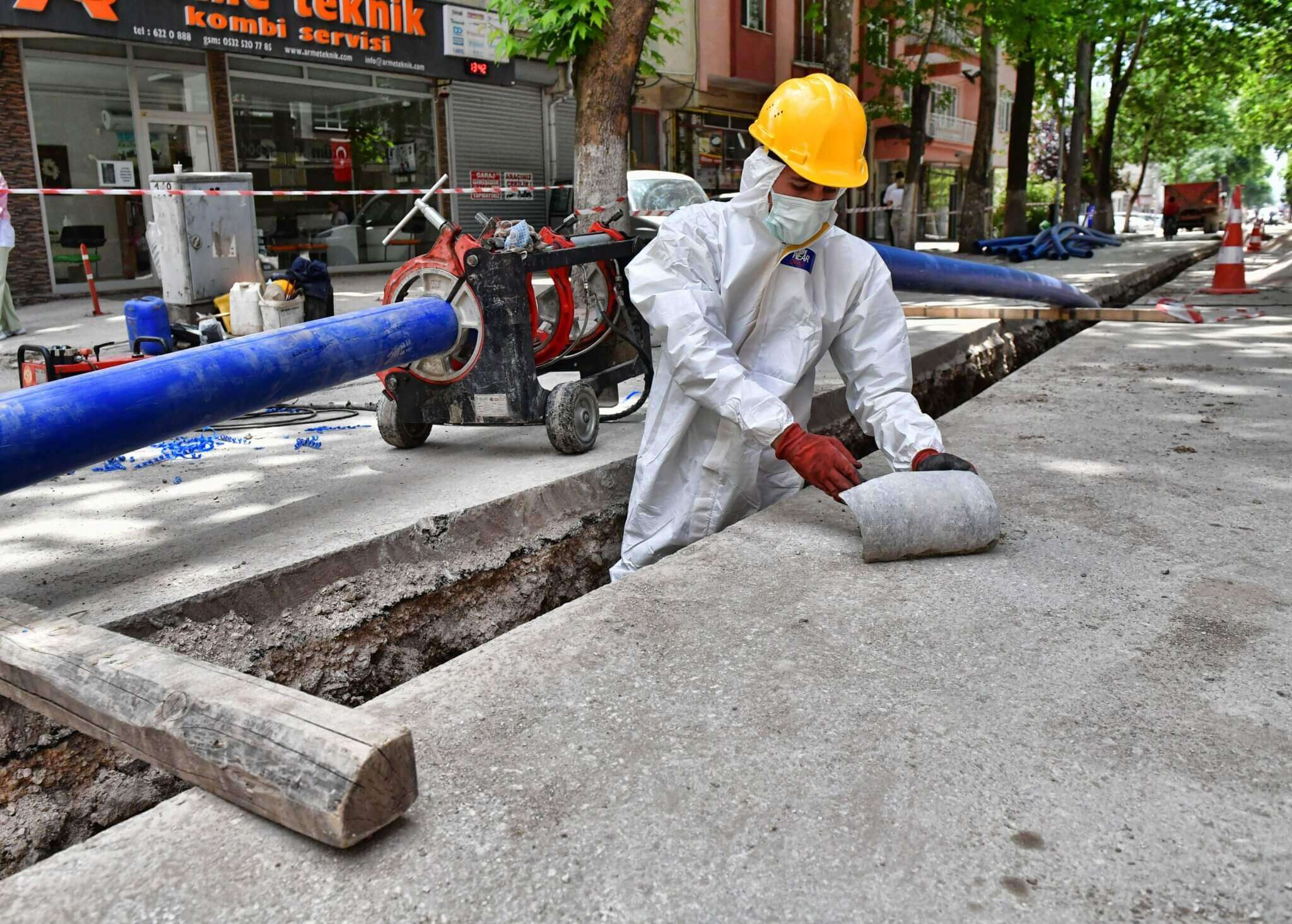
Last year unions around the world succeeded in making health and safety a fundamental right at the ILO, and now, workers are making that hard-fought victory a reality by organizing for safer jobs – in particular organizing union health and safety committees.
On International Workers Memorial Day, 28 April, UNI Global Union remembers those who have lost their lives or suffered injuries at work, and we also redouble our commitment to preventing harm on the job. Occupational health and safety (OSH) committees are the first line of defence against unsafe conditions.
These committees have become more critical than ever in the aftermath of Covid-19. Even though the worst of the pandemic has hopefully passed, inadequate personal protective equipment, a rise in third-party violence, excessive hours, a punishing pace of work and growing strain on workers’ mental health are persistent, serious complications.
But workers have been fighting back, and through their unions, they are making their jobs safer.
Christy Hoffman, General Secretary of UNI Global Union, said:
“The cost-of-living crisis spurred a wave of strikes and workplace actions, but just as important, the pandemic reinvigorated organizing around health and safety.
“An untold number of workers either died or are suffering long-term consequences because they contracted the virus at work. But Covid is not the only serious hazard workers are facing. They are being pushed to the limit by employers who want more production in less time and for less wages. This squeeze takes a physical toll on workers’ bodies while the pressure frays mental health.
“That is why we are standing with unions everywhere to make work safer and strengthen health and safety committees. Work should be a source of dignity and empowerment not harm, disease and loss. One injury is too much, and one death is too many.”
Last year, UNI reached a breakthrough global agreement with outsourced customer service giant Teleperformance. The agreement includes the creation of elected union health and safety committees that will address issues of employees both on-site and remote workers. It provides for training of health and safety representatives and a process to identify and remediate any workplace hazards.
To address psycho-social risks, the agreement limits surveillance on the job by stating that monitoring will be “proportionate to business needs” and “respect the worker’s right to privacy.” Teleperformance will notify workers of how the company uses surveillance tools, like cameras and AI monitoring, as well as how the data is used to evaluate performance.
UNI has stood with affiliates globally who are building their capacity to organize for safer jobs and stronger unions. For example, we supported UniPHIN in Nepal, where OSH committees have become critical in organizing hospital workers. UniPHIN began training workers about health and safety in 2021 – during the pandemic’s peak. Through this training, the union organized and created OSH committees that helped workers secure PPE, mental health support and time off.
“For many workers, UniPHIN was a source of hope and we were able to organize new members in a difficult time,” said Pratima Bhatta, UniPHIN Secretary Treasurer and Organizer.
Starting in 2016, the Sindicato de Trabajadores de Hipermercados Tottus (SINATHIT) in Peru conducted campaigns to educate workers at Tottus hypermarkets about their right to choose their own health and safety representatives, resulting in the union being well represented on the OSH committee despite company interference. The union invested in training and organizing workers around OSH issues, resulting in a drop in injuries and a stronger union.
That union power was put on display when young union representatives, galvanized through OSH activity, organized sit-ins at Tottus stores across the country, forcing the company to make concessions in bargaining a new contract, resulting in major wage increases. The union emerged stronger as a result of members’ solidarity and determination, showing that OSH committees not only prevent injury but enable organizing around other issues.
Occupational health and safety is a fundamental right, but without unions, we have seen that workers’ rights get disrespected. On International Workers’ Memorial Day, we join with unions from around the world to secure safe jobs through organizing. and emphasizing the importance of OSH committees,” said UNI’s Hoffman.
The ITUC’s International Workers Memorial Day materials are here.
Go to 28april.org to find events in your community.



 Meanwhile, health and safety rallies and meetings, led by BBWWF and BSBWWF, dominated the marking of the IWMD in Sri Lanka.
Meanwhile, health and safety rallies and meetings, led by BBWWF and BSBWWF, dominated the marking of the IWMD in Sri Lanka.



